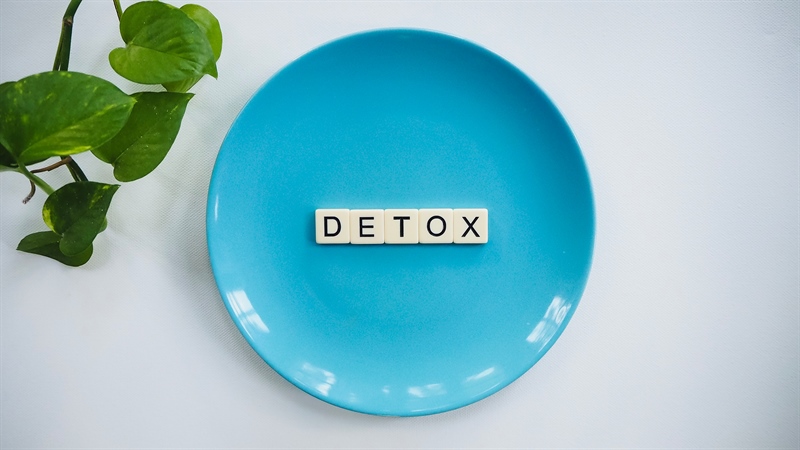Detox to Treatment, a Guide
Do I need detox? And how is treatment different? We break down how both can be crucial in recovery

When seeking help to quit using substances such as alcohol, opioids, barbiturates or benzodiazepines, detox is recommended due to the severity of the physical symptoms related to the withdrawal from those substances. Many individuals seeking help for the first time may assume that they just need help with overcoming the withdrawal symptoms, so they opt to go to detox and not follow up with a treatment program. But there are many reasons why completing a treatment program after detox is so important.
First, How Do I Know if I Need Detox?
The necessity of detoxification services is determined by level of dependence and the type of substances used by an individual. The substances listed above (alcohol, opioids, barbiturates, tranquilizers and benzodiazepines) are attributed to causing physical dependence when used consistently over time.
Let’s take a look at the criteria for substance use disorder to better understand how substance use disorder is diagnosed by treatment professionals.
Substance use disorder (SUD) is assessed by determining if an individual is experiencing two or more symptoms from the following criteria:
- Loss of control over drug use — i.e. wanting to cut down or stop substance use but not being able to do so
- Investing lots of time to acquire, use and/or recover from substance use
- Substance use leading to relationship conflicts
- Cravings
- Increase in risky behavior, i.e. driving while under the influence
- Failure to meet personal and professional obligations
- Development of withdrawal symptoms, which can be relieved by further substance use
- Increase of tolerance level to substance
- Loss of interest in activities previously enjoyed that do not involve substance use
Severity of SUD is determined by how many of the symptoms listed above the individual experiences. Those that have developed tolerance, cravings and physical withdrawal symptoms may be good candidates to pursue a detoxification program before entering treatment.
Substance Use Disorder Is a Full-Body Disease
SUD not only impacts your physical health but also your mental and spiritual health. Continued substance use alters your brain chemistry, causing depletion of your “feel good” neurotransmitters — serotonin, norepinephrine and dopamine. Over time, the positive reinforcement from these “feel good” neurotransmitters causes your brain to associate the substances you are using with the euphoria experienced while using.
At this point, not only are you developing an addiction to these substances, but physical dependence on them as well. Your neurotransmitters’ adaptation to the drug use triggers uncomfortable and even dangerous reactions to the drug withdrawal. You may experience heightened feelings of anxiety, depression and agitation, as well as increased blood pressure and heart rate. The withdrawal from some sedatives, such as alcohol and benzodiazepines, can even trigger seizures.
The Difference Between Detox and Treatment
Detoxification services are the first step in the recovery process to assist individuals with overcoming the withdrawal symptoms associated with their body’s physical dependence on the substance(s) used. When entering detox, one can expect to be given some medications to assist with lessening withdrawal symptoms and to aid in sleep. An individual may have the option to attend educational groups about SUD and how substances affect our bodies. Individuals are treated by a team of licensed medical professionals and may be prescribed medications to manage underlying mental health disorders or heightened feelings of anxiety and depression that they may be experiencing.
Treatment for substance use disorders differs significantly from detox. Detox addresses the withdrawal management of substances that cause physical dependence. These substances do not even need to be addictive; there may be withdrawal symptoms in patients taking nonaddictive medications such as steroids and antidepressants. Nonaddictive medications have no reinforcement effect. They do not make anyone high or wanting higher or more frequent doses. But the detox of addictive substances is only the first step of addiction treatment.
Treatment programs offer various levels of care, including inpatient or residential, partial hospitalization programs, intensive outpatient, outpatient, and medication-assisted treatment (can also be referred to as opioid treatment programs). When assessing an individual to determine the best level of care for them, treatment providers take the following into consideration: severity of substance use, how long an individual has been using substances, history of treatment episodes, route of administration, medical and mental health diagnoses, and social determinants of health.
More Help & Information
Sobriety vs. Recovery: What's the Difference?
Are the concepts themselves up for debate? Do they require certain treatments, or abstinence from everything? It's complicated! And new ways of thinking are changing the conversation.
Now Elite NFL Players, They First Tackled Addiction | News Roundup
All Sober compiles the best of the latest headlines. Here's your addiction and recovery news for the week of Feb. 19, 2024!
Help Them Help You: Explaining Your Mental Health to Your Family
Your mental health can affect — and be affected by — your loved ones. Here's how to discuss it with them so everyone can heal.
Dry January (and Beyond): The Possibilities Are Endless
There's never been a better time to go sober. Whether you're trying it out this month or already living the life, join us for some tips, ideas, inspiration — and maybe even new friends.
Sober Holiday Tips: Meeting 'Share-a-Thons'
Need to get out of the house for a bit and see some friendly sober faces? Recovery support group meeting marathons run 24/7 from Christmas Eve through New Year's Day.
What Happens After an Intervention?
Your loved one agreed to get treatment for addiction during their intervention — or not. Here's what you need to know about what comes next.
We're in This Together: Building a Healthy Sober Support Network
You are the captain of your recovery, but you don't have to do it alone. A sober support network will lift you up in tough times and celebrate your triumphs.
Real-Life Recovery Tips: Phone a Friend
When you're traveling, you can take your sober support network with you — right in your pocket. Rocker Kasim Sulton shares his top recovery tip in this video.











